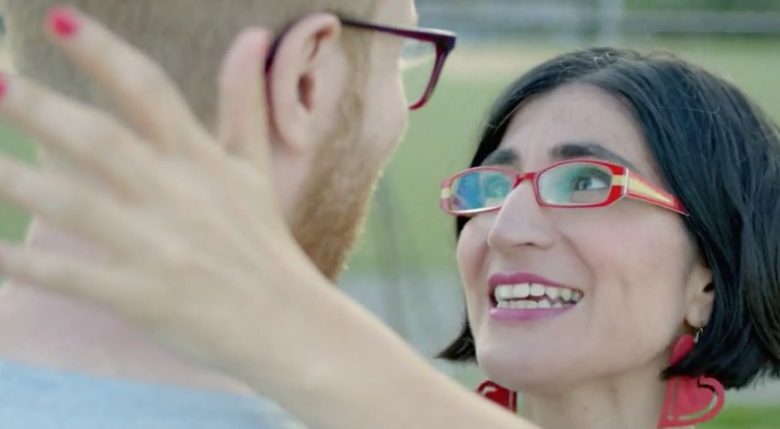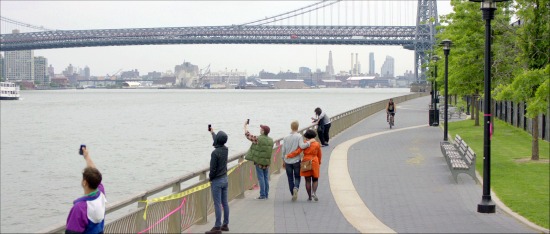‘Blackout’s’ Farsad: Can 1 Tweet Kill My Career?

Farsad says with every joke, picture and Tweet she sends out she asks herself, “is this joke gonna be the end of my career as I know it? Sometimes I feel that way. It’s a sh**y way to live.”
Even making an indie rom-com connected to Hurricane Sandy’s fallout stirred some anxiety. Would people attack the film for not telling about the people who lost their lives in the hurricane’s wake?
“There’s going to be movies about the destruction of Rockaway. The hurricane I experienced was mostly about the blackout,” says Farsad, a New York resident. “There are 8 million stories in the Naked City. There’s room for all of these stories.”
Those powerless days inspired “3rd Street Blackout,” now showing in select theaters.
The comedy stars Farsad as a neuroscientist facing a romantic crisis during the extended power outage. Co-director Jeremy Redleaf plays Rudy, her character’s beau. He’s dealing with the fact that she may, or may not, have cheated on him before the lights went out.
Can this couple survive possible infidelity, not to mention the lack of WiFi?
For Redleaf, making a tech-free romance proved an artistic challenge.
“My first romantic conversation was over AOL Messenger,” Redleaf says. That confession underscores a modern problem. In today’s Tinder age, he says, “it’s a real challenge to meet a person in a real situation.”
We often feel more comfortable, more confident, using a screen to communicate. He admits to texting a friend even though they were only a few feet apart. It’s just like what we see in the movie.
“Sometimes,” Farsad adds regarding relationships, “you can’t say the thing you wanna say … and digital conversation makes it worse.”
Ironically, co-directing a feature film meant learning how to talk through any disagreements.
“There were passionate debates to really reconcile,” Redleaf admits. “We had to get on the same page and really talk about what the issue was.”
In one case, that meant snipping a rather vulgar line for the sake of the story.
The filmmakers’ time during the blackout offered plenty of inspiration. Part of that came from simply getting to know their neighbors. They shot interview footage of real New Yorkers, hoping to insert the snippets into the film. Those moments were left behind, but some real Big Apple dwellers did get into the finished film.
“In many ways, [3rd Street Blackout] is a love letter to New York City and the people who live there,” Farsad says.
And, for those weaned on Woody Allen’s version of Manhattan, “Blackout” looks like the real city.
“New York City is extraordinarily diverse,” Farsad says. “Why should it not be a part of what we see in our movies?”
Both Farsad and Redleaf have intriguing careers above and beyond their joint feature. She is stand-up comic and author, penning the personal memoir “How to Make White People Laugh.” He’s the driving force behind the web series “Odd Job Nation.” He also supplies the voice of Gonnigan on “Sesame Street.”
Their stock in trade is humor, but both say “Blackout” has some serious messages between the rap battles and talk of being a “two-Roku” couple.
Farsad, an Iranian-American, works to battle bigotry in American culture through her art. One way to do that is to do what her characters does in “Blackout.” Meet your neighbors.
“You’re less likely to hate someone you know. Meeting your neighbors isn’t all about getting a better chance to get laid … it’s actually building bonds of community,” she says.
Redleaf says the film’s tech-free trappings are a not so subtle hint that we all need to power down occasionally.
“That’s what we’re going for. Put down the smart phone and have some fun,” Redleaf says.

